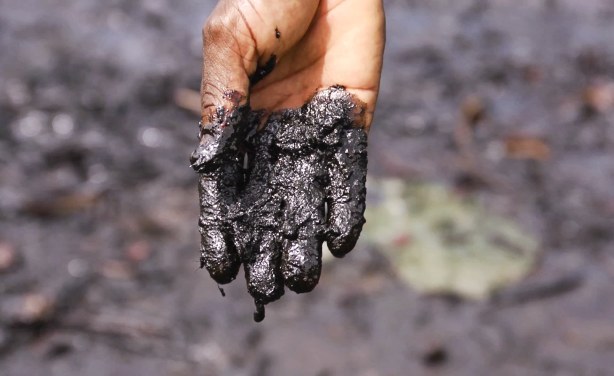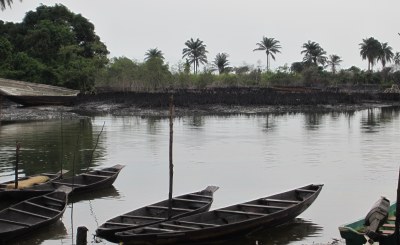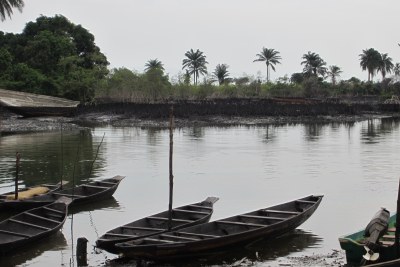-
Nigeria: Why Oil Is a Humanitarian Issue for Nigeria's New President
The New Humanitarian, 17 April 2023
'What the communities are asking for is that they clean up the mess, compensate the people, and restore their environment to what it was before they came in.' Read more »
-
Nigeria: Activists Accuse Shell of Causing Delay in Oil Spill Lawsuits in London
This Day, 11 April 2023
Shell Plc is attempting to shield itself from scrutiny over pollution in Nigeria's oil-producing Niger Delta, lawyers representing more than 13,000 Nigerians have argued at a… Read more »
-
Nigeria: Oil Spill - Shell Incidents Rise 100% to 12 in 1 Month - Report
Vanguard, 13 March 2023
Oil spills recorded by Shell Petroleum, the largest petroleum producer in Nigeria, increased month-on-month, MoM, by 100 per cent to 12 in February 2023, from six recorded in the… Read more »
-
Nigeria: Shell Must Clean Up Devastating Oil Spills in the Niger Delta
AI London, 2 February 2023
Reacting to the news that two Nigerian communities, which have been devastated by oil spills, have filed claims against Shell at the High Court in London, Amnesty International's… Read more »
-
Africa: UN Unveils Plan to Prevent Stricken Oil Tanker Disaster Off Yemen Coast
UN News, 8 April 2022
Critical funding and timely action are needed to prevent a decaying tanker anchored close to Yemen's coastline from sparking a major oil spill, the UN Humanitarian Coordinator for… Read more »
Why Oil Is a Humanitarian Issue for Nigeria's New President
President-elect Bola Tinubu is prioritizing the revival of Nigeria's troubled oil industry, which has been a source of wealth but also a curse due to its negative environmental impact, violent unrest, and lawsuits. Nigeria's oil-rich Delta region has suffered from pollution caused by oil spillages, leading to the destruction of the ecosystem and loss of livelihoods for farming and fishing communities, writes Dulue Mbachu for The New Humanitarian.
The Niger Delta has suffered some of the worst pollutions on the planet, with an estimated 8,000 spills between 2006 and 2019, many of which have devastated the area's wetlands and mangrove swamps. Farming and fishing communities have been divided by resource disputes and forced into alternative industries such as oil theft, kidnapping, and piracy.
The major oil companies operating in Nigeria, including Shell, ExxonMobil, Chevron, and Eni, are selling off their onshore and shallow water assets to curtail their environmental impact and address net-zero obligations, as well as to avoid litigation from local communities. Local communities are demanding compensation for the environmental damage caused by the oil industry before the companies leave.
Delta communities, working with the support of environmental advocacy groups, have been fighting back. The Aghoro community in Bayelsa state, which is seeking U.S.$1.5 billion from Shell in compensation for a 2018 spill, got a court injunction in June last year restraining any asset sale pending the suit's determination.
InFocus
-
Nigeria's coastal areas are known to face environmental hazards and risks. Oil exploration and exploitation are but some of the sources of these hazards. Oil spillage, gas ... Read more »
-
Oil giant Royal Dutch Shell has agreed to pay at least U.S.$111 million to resolve a dispute over an oil spill that occurred in 1970, which affected Ogoni ... Read more »
-
At least 14,000 Nigerian residents from the oil-producing Niger Delta region have filed a compensation claim against Shell, saying that oil spills resulting from the oil Read more »

Pastor Christian Lekoya Kpandei's hand covered in oily mud, Bodo Creek (file photo).



